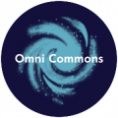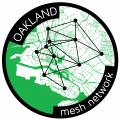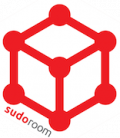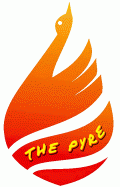|
|
It has become clear to me that the value of this ethnography lies not in my description of experiences, but rather in elucidating the myriad shifting possibilities that emerge in the highly intersubjective field of discourses. As my research has deepened, the one thread that ties these discourses together is the pervasive feelings of anxiety evoked by the blurred boundaries between subject and object, voyeur and exhibitionist, human and machine, reality and imagination. All technologies extend the possibilities of humankind, and in turn, they become humanized and embedded in everyday experiences. However, at times technologies may seem alien and incomprehensible, instigating fear and a sense of powerlessness. The sense of agency felt as one “types oneself into being” through the creation of a publicly viewable online profile can quickly be negated by the discovery that this personal freedom comes with the cost of possible persecution by unintended audiences, such as potential employers and legal authorities. What occurs is a split of selfhood, a temporal shift of identity from intentional author to victimized object of the gaze.
Despite the existential anxieties that arise frequently in everyday discourse, many celebrate the Internet for its potential to democratize information. The perceptual difference between the democratization of information and the invasion of personal privacy lies in the degree of power individuals perceive themselves as having over the medium, as well as the extent to which they feel the medium has power over them. A common way of regaining control and agency when confronting one’s own powerlessness is with words and thoughts, projecting apathy or distaste and finding affirmation through others. Feeling a loss of connection, my friend described her adolescent brother as “consumed by MySpace, his gaze never turning from the computer screen”. For her brother, it is likely that MySpace conveniently fulfills his youthful desire to hang out in a space safe, away from the judging gaze of his family. To reject or criticize is to reclaim one’s subjectivity, or at least portray oneself as the author of one’s own meanings.
Years ago, I endeavored to learn Swahili and travel to Zanzibar for fieldwork. As I became engaged with the actual practice of writing ethnography, however, it became clear to me that writing the “other” would always feel somewhat wrong, condescending. When I wrote my first paper on Facebook back in the spring of 2006, I was struck by the way in which my own experiences resonated in my writing, how the words of others challenged and complicated my perspective with layers of meaning. In other words, I realized the ethnographic authority in my own position as a “native” of an emergent “other”. Eventually, the real struggle became that of subverting such a perceived authority in pursuit of deep listening- of practicing empathetic, temporal re-interpretations of my interpretations. It is easy to say in theory, but difficult to show in practice. As such, I have concocted plans for a website that would ideally bring to life the co-constructive nature of this project by enabling further co-authorship in the form of a wiki . Rather than simply purporting a “native” interpretation, such an ethnography incorporates the voices of “other natives” as well as “others”. As for now? I no longer have a working title. That, too, must emerge out of the thematic coalescence of the many stories and experiences that demand still further interpretation.
For the past two years or so, I’ve been conducting field research on online social networks (MySpace, Facebook, and Tribe.net in particular), and am now in the midst of writing up my ethnography/thesis (tentatively titled “Webnography: An Ethnography of Online Social Networks” . Hopefully, by May I will be once again walking to a podium, this time to receive my master’s degree in anthropology from Wesleyan University. . Hopefully, by May I will be once again walking to a podium, this time to receive my master’s degree in anthropology from Wesleyan University.
Cyberanthropology, as it’s often called, is a relatively new field. Nevertheless, I’m entirely overwhelmed by the vast amount of information and research available online. For those interested in the field, I’ve put together a fairly well-organized assortment of links to past studies, pertinent blogs, and must-read books on the subject. You can get to it by clicking here.
I chose to conduct my research in an area of human life that I felt I was already a part of. I’ve little desire to study the “exotic other,” as I believe true knowledge starts with an intrinsic understanding, which is then expanded through conversations with others, situating the topic within the broader context of history and philosophy, and engaging in dialogue with other researchers of the subject. While there are empirical studies out there, my own research is anything but. The only true claim to authority I have is over my own experiences.
“Language is a virus from outer space.”
-William Burroughs
In the words of Marshall McLuhan, “the medium is the message”. In other words, we’re not really saying anything new – how could we? What is changing, however, are the tools for communication. Each new medium takes on qualities of those which came before it, and extend our possibilities for communication. Thus, in the case of communication on the Internet, we experience the permanence and distantiation from time and space that print media has allotted for, as well as the immediacy and convenience afforded to us by the telephone. We are furthermore enabled to broadcast ourselves in a way that television could never quite encompass, even with “reality” programming. Unlike any previous private communications medium, our experiences on the Internet are enhanced by images, video, and sound.
“Technology is the campfire around which we tell our stories.”
-Laurie Anderson
Perhaps the greatest danger to writing about the Internet is that of technological determinism- the belief that technology determines changes in society. On the contrary, societies develop technologies that are always being shaped by the culture they’re embedded in. We are not a society being altered through our technologies- rather, we are human beings engaging in the same activities through the use of evolving tools (hence the “campfire” metaphor, above). The modern age, however, has arguably transformed humankind’s way of thinking and perceiving in ways that have yet to be fully determined. Understanding where we are, where we’ve come from, and where we are going is an important endeavor, I believe, if we are to understand the implications of modernization and the future of this planet.
These past few weeks have been a rush of novel experiences, as I reconfigure my identity in an extremely pointed way. I have been meeting so many new people, and first conversations almost inevitably touch upon my research, which is essentially what i do (who i am?) right now.
As a result, I’ve taken to carrying a digital voice recorder in my pocket. It’s mere presence has a similar effect on me as speaking in front of a crowd of people: intense social phobia. I treat the object gingerly, awed by its potential to preserve the situation so very perfectly in a peculiar mode. Tonight, a friend who promotes his tracks on MySpace spoke of Google’s vast database of categorized interest nodes, sending advertisements directed uniquely at his individual identity as derived from his web browsing habits. Google’s rumored launch to “out-open” Facebook– that is to say, become the next leading online social network, is of particular interest to me, as is the increasing popularity of niche social networking sites, blogospheres, and Second Life.
Even the acknowledgment, as requisite as it is in the field of anthropology, of the problematic nature of representing the “other” (ethnocentrism, racism, colonialism, imperialism, etc;) has become tired, stationary, and ultimately beleaguered by jargon. I seek the active creation of an ethnography both by and for the people- accessible as an inspired, collaborative story-telling. Such an endeavor thus expands the reach of information, rather than folding in upon itself in the mobius strip of academia.
Have I simply made a case for irresponsible, decontextualized ethnogaphy? The feminist concern with being “spoken for” by the dominant underlies my desire to closely examine a cultural form I can safely call my own. My autoethnography is, or so I hope, supplemented and lent legitimacy in the sharing of it, and in the incorporation of myriad perspectives.
Your comments would be much appreciated.
Based on fieldwork amongst a community of online gaming fans, Knorr argues that the field of anthropology is well-suited for the study of online communities as sites of sociocultural appropriation. The habitat of an online community is located within the Internet infrastructure, a dynamic space that utilizes multiple forms of mediated technology. Rather than limiting communication to the common shared interest, members of the group exchange gossip, create hierarchies, and establish new spaces for group interaction when older forms are obliterated. The community in question is described as a “nomadic tribe” that retains interpersonal structure regardless of geographic or even Internet space. The members of this community can best be described, not as consumers of technology, but as active creators of their online habitat. In this sense Internet communication technologies are reconstructed through a process of appropriation. So too are social networking communities appropriated as they are reworked to suit individual groups, as is the case in online activism and the geographical dispersion of subcultures.
|
|





 . Hopefully, by May I will be once again walking to a podium, this time to receive my master’s degree in anthropology from Wesleyan University.
. Hopefully, by May I will be once again walking to a podium, this time to receive my master’s degree in anthropology from Wesleyan University.